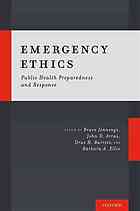Inclusive Ethics Extending Beneficence and Egalitarian Justice 1st Edition by Ingmar Persson 0192510624 9780192510624
$50.00 Original price was: $50.00.$25.00Current price is: $25.00.
Inclusive Ethics: Extending Beneficence and Egalitarian Justice 1st Edition by Ingmar Persson – Ebook PDF Instant Download/DeliveryISBN: 0192510624, 9780192510624
Full download Inclusive Ethics: Extending Beneficence and Egalitarian Justice 1st Edition after payment.

Product details:
ISBN-10 : 0192510624
ISBN-13 : 9780192510624
Author: Ingmar Persson
Inclusive Ethics begins from two ideas which are part of our everyday morality, namely that we have a moral reason to benefit or do good to other beings, and that justice requires these benefits to be distributed equally. A morality comprising these two general principles will be exceedingly hard to apply as these principles will have to be balanced against each in an intuitive fashion, but also because the notion of what benefits beings is quite complex, comprising both experiential components of pleasure and successful exercises of autonomy. Ingmar Persson argues that, on philosophical reflection, these ideas turn out to be more far-reaching than we imagine. In particular, the reason to benefit commits us to benefit beings by bringing them into existence. Further, since grounds that are commonly used to justify that some are better off than others – such as their being more deserving or having rights to more – are untenable, justice requires a more extensive equality. The book concludes by reflecting on the problems of getting people to accept a morality which differs markedly from the morality with which they have grown up.
Inclusive Ethics: Extending Beneficence and Egalitarian Justice 1st Table of contents:
Part I. The Inclusiveness of Benefiting and Reasons of Beneficence
1. Two Aspects of Things Being Intrinsically Valuable for Us: Well-Being and Autonomy
1.1 The ‘Inner’ Aspect of Well-Being
1.2 The ‘Outer’ Aspect of Successful Exercise of Autonomy
2. Defence of an Inclusive View of Benefiting and Reasons of Beneficence
2.1 The Moral Importance of the Potentiality for Consciousness
2.2 The Moral Importance of the Possibility of Consciousness
2.3 Respect for the Autonomy of Persons
3. Three Problems of Procreation: Replaceability, the Asymmetry, and the Non-Identity Problem
3.1 The Replaceability of Sentient Beings and Persons
3.2 The Asymmetry between Starting Good and Bad Lives
3.3 The Non-Identity Problem
4. The Repugnant Conclusion and the Non-Transitivity of Value Relations
4.1 The Problem and Some Attempted Solutions
4.2 The Supervenience of Value and Consequent Non-Transitivity
5. The End of Life and of Consciousness
5.1 The Definitional and Moral Meaning of Death
5.2 The Necessity of a Physical Subject of Consciousness
6. The Inclusion of Non-Human Animals
Part II. Extreme Egalitarianism
7. The Ground for the Justice of Equality
7.1 A Principle of Just Equality
7.2 Two Just-Making Conditions: Desert and Rights
7.3 The ‘Demolition’ Argument against Just Inequality
7.4 Self-Defence and Responsibility as Causally Based
8. The Badness of Unjust Inequality
9. Prioritarianism and Its Problems
9.1 Prioritarianism and Impersonal Value
9.2 Prioritarianism, Levelling Down, and the Desirability of Welfare Diffusion
9.3 Egalitarianism, Prioritarianism, and the Inclusive View
9.4 Is Prioritarianism Intrapersonally Applicable?
10. Some Alternative Bases of Equality
10.1 Deflationary versus Selective Groundings of Equality
10.2 The Status of Inviolability or Not to be Harmed as a Means
Part III. Philosophical Thinking about How to Live
11. On the Usefulness of the Principles of Beneficence and Justice
12. The Point of Moral Philosophy
13. Beyond Ethical Inclusiveness: The Philosophy of Life
People also search for Inclusive Ethics: Extending Beneficence and Egalitarian Justice 1st:
justice beneficence and autonomy
justice beneficence and respect for persons
extending justice
beneficence justice autonomy
beneficence justice autonomy non-maleficence
Tags: Inclusive Ethics, Extending Beneficence, Egalitarian Justice, Ingmar Persson
You may also like…
Politics & Philosophy - Cultural
Business & Economics - Responsibility and Business Ethics
Politics & Philosophy - Anthropology
History - World History
Computers
Politics & Philosophy - Social Sciences
Justice and natural resources an egalitarian theory First Edition Armstrong












